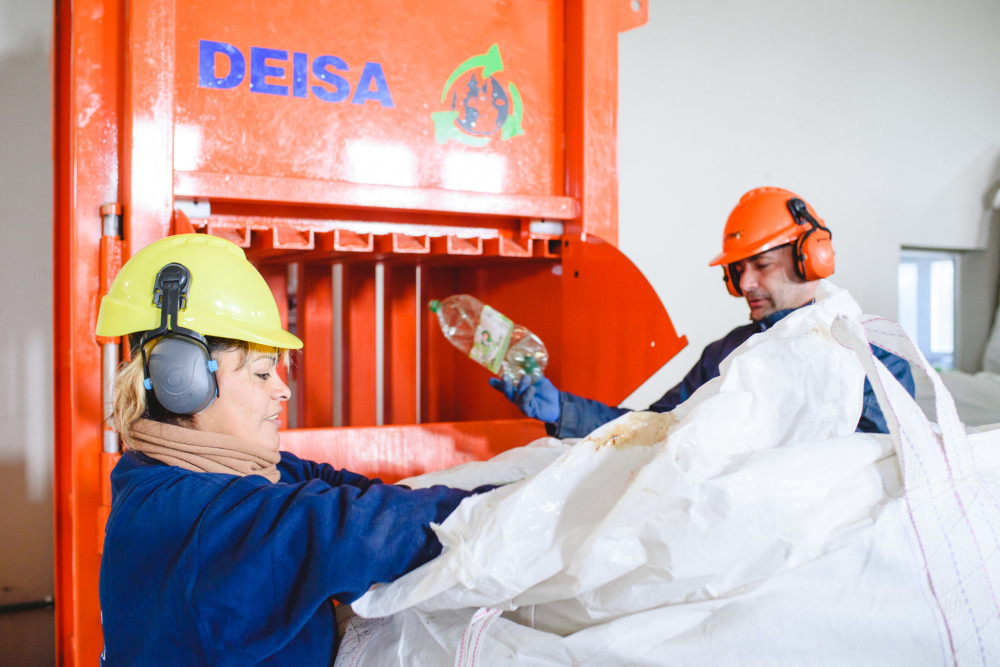Amcor and Delterra: navigating the path to a circular system for packaging
Sustainability
August 25, 2022Reading time: 3 minutes

As a global leader in developing and producing responsible packaging solutions, Amcor is proud of the work we do to keep food, water, and medicine fresh and safe for millions of people every day.
But we know that no matter how much effort we put into making our products recyclable, we have a key role to play in promoting better waste management and recycling infrastructure to ensure that packaging that is designed to be recyclable goes on to be recycled in practice and at scale.
In 2021, we began our partnership with Delterra – a non-governmental organization (NGO) founded by consultancy firm McKinsey & Company. Together, they design innovative and scalable solutions to tackle the world’s most complex environmental challenges. Through its Rethinking Recycling initiative, Delterra is working to empower every community to build green, inclusive and economic waste management and recycling systems. It brings together communities and businesses to address the supply and demand challenges surrounding recycled materials.
Engaging communities in the circular economy
Building on its work in Buenos Aires, Argentina, Delterra was looking to partner with a city to develop a proof-of-concept waste management transformation model that could then be scaled to other cities. The goal was to maximize the recovery of recyclable and organic waste in a way that fits within a municipal waste management budget and is socially inclusive of the communities whose livelihoods depend on waste. Olavarría, a mid-sized industrial city in the province of Buenos Aires, was selected for this initial proof-of-concept.
Kicking off with a small pilot of 160 households, work started in the form of a three-month community research baseline to understand residents’ identities, values and experiences around waste. This was necessary in order to design the new waste management system in a human-centered design process. The research helped Delterra design the right interventions, messages and overall behavior-change strategy to help residents take the step from intention to action. The next step was to look at the collection system, determining the best way to transition from unsegregated waste to three-stream curbside collections for recyclable, compostable and “trash”. This also meant piloting different collection systems to find the best solution, considering quantity and quality of materials recovered and cultural fit with the city’s residents.
Fast forward 12 months and the program is now open to over 6,500 residents and 350 businesses, with active participation of almost 50% of the community – a rate higher than many U.S. cities. This means that half of the households and businesses are correctly separating their waste into three streams and putting it out for collection on the correct collection days.
Building a socially inclusive model
The local communities involved have directly benefitted in more ways than one. Waste workers now have access to safer and healthier working conditions, and the program is expected to generate more than 30 direct jobs in the sorting and composting plants alone. These workers belong to the families that used to make a living by recovering valuable materials (mainly cardboard and metals) from the mixed-waste trucks that unload into the landfill on a daily basis. Now, they are formally employed in a sorting plant with clean and safe working conditions and a regular and reliable salary.
These are important benefits that will continue as the program expands, thanks to a significant investment from the City of Olavarría toward a new sorting plant building that, coupled with the grant provided by Amcor and the Alliance to End Plastic Waste to purchase the equipment, will enable Olavarría to recycle material from all 120,000 residents by the end of 2023.
What this means
Before the GIRO project, just 24 tons of plastic were recovered each year. By 2024, we expect to see the annual figure hit over 2,000 tons – 80 times more – putting Olavarría on the map as a leading city in recycling and waste management in Argentina. The Amcor team in Latin America has been delighted to work with Delterra and our partners at the Alliance to End Plastic Waste to see first-hand how the right combination of infrastructure, education and consumer participation can deliver a step change in recycling and waste management.
For our part, this project is one of many that Amcor is supporting to help improve recycling infrastructure, educate consumers and promote better waste management – all of which are key steps towards the development of a truly circular system for packaging. We know from talking to our customers that demand for recycled content continues to grow and we’re proud to be at the forefront of efforts to secure its supply and reduce demand for virgin materials.
To find out more about Amcor’s collaborations and efforts to maximize recycling rates and support waste management solutions, visit our sustainability partnerships page.
